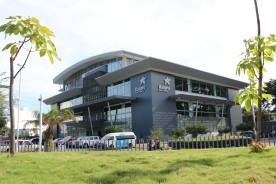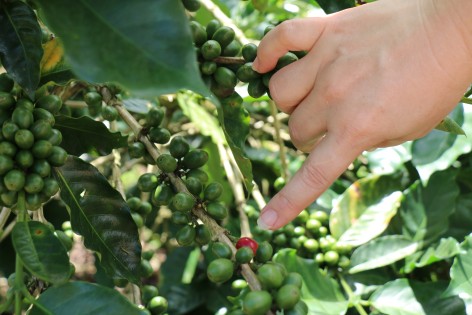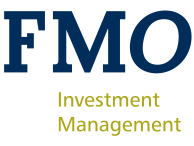Support in times of distress
Nicaragua is the largest country in Central America and the second poorest in the Americas by nominal GDP. The country has a population of 6,5 million people. Its agricultural sector is the country’s main economic driver and includes amongst others coffee, beef, shrimp, lobster, sugar and peanuts. Nicaragua maintained a good economic growth rate of 4.6 % and 4.7 % GDP in 2016 and 2017, but this has changed in 2018. In April 2018, protests against proposed pension reform evolved into general protest against the regime of President Daniel Ortega resulting in a severe political crisis with significant effect on the country’s economy. Due to the social and political unrest the economy suffered a contraction of 3.8 %. For 2019, the economy is expected to plummet, with a negative growth of 5%. Economists stated that in 2018 the economy overall had lost roughly 200,000 jobs. Elections are scheduled for 2021 and the outlook for the near to medium term remains uncertain.
Nicaragua’s agribusiness sector has been able to weather the crisis partly given its export orientation, however the total amount of loans provided to the agribusiness sector has decreased. In addition, Nicaragua is highly vulnerable to climate events: the probability and average economic losses from natural disasters are above the regional average and could have a substantial impact on long-term growth and revenue. The instability in Nicaragua has a direct effect on businesses operating in Nicaragua: profit and prospects shrink by the economic downturn. We believe that “doing makes the difference”. FMO commits to supporting the private sector and encourage sustainable development in Nicaragua. This is of vital importance for continued sustainable economic development, especially in times of distress.
Differentiator in the market
In 2014, FMO and Banco de la Producción S.A. (Banpro) co-designed a first Green Line financing with the aim to stimulate green modernization among its agricultural client base. Green Line financing is a way for FMO and its partners to actively promote sustainable initiatives and endorse 'green' business.  Banpro is the largest bank in Nicaragua. The bank plays an important role in the economic development of Nicaragua, as 67% of its portfolio is allocated to corporates (61%) and SMEs (6%). The objective of the Green Lines is to strengthen the bank's ability to serve its agribusiness clients and to stimulate green development and as such be a differentiator in the market. Banpro is 62 % owned by Promerica Financial Corporation (PFC), one of the largest financial groups in Central America and a long-standing partner of FMO.
Banpro is the largest bank in Nicaragua. The bank plays an important role in the economic development of Nicaragua, as 67% of its portfolio is allocated to corporates (61%) and SMEs (6%). The objective of the Green Lines is to strengthen the bank's ability to serve its agribusiness clients and to stimulate green development and as such be a differentiator in the market. Banpro is 62 % owned by Promerica Financial Corporation (PFC), one of the largest financial groups in Central America and a long-standing partner of FMO.
After the successful Green Line cooperation with Banpro, FMO and PFC co-designed a Green Line financing initiative, whereby green lines to PFC subsidiaries were provided in Ecuador, Costa Rica, Guatemala and El Salvador. In addition to financing, group wide capacity development was set up assisting PFC’s subsidiaries in building their green loan books. Banpro has an important role in coaching and knowledge sharing about green lines across the Group subsidiaries, and a leadership role for the Group’s sustainable banking ambitions.
More than a loan
The first green loan of USD 15 mln was signed with Banpro in 2014 to ‘green’ the value chains of four sectors: coffee, sugar, peanuts and rice. Since then, Banpro received green lines from other funders, established a dedicated green team and managed to generate a well-diversified green portfolio. This has resulted in a broader understanding of green, allowing the portfolio to grow and to be well diversified. In 2017, the green portfolio reached USD 40 mln, which was allocated in projects of renewable energy (34%), agri innovation (27%), and energy efficiency (38%).

One red ripe coffee bean*
In 2018, the green portfolio reached USD 85 mln. Part of that increase was supported by a second Green Line that FMO issued to Banpro, in the form of a USD 30 mln senior unsecured loan that was fully utilized by Banpro to finance businesses in the agribusiness sector. One of the projects that was financed with FMO funds was the installation of a biodigester of a cassava processing plant, saving firewood and generating clean energy.
Fueling the economy by helping the environment
Sustainable economic growth starts with creating opportunities for individuals. Helping entrepreneurs and businesses to flourish by offering them the means they need is key to what we do. Therefore, FMO works with financial institutions for a world where finance is more sustainable and accessible to everyone. The strong focus on the Green Lines is aligned with FMO’s 2025 strategy of focusing on SDG 13 Climate Action, by building a large green portfolio, as well as SDG 7 Affordable and Clean Energy, by contributing to the financing of renewable energy projects. Green products go hand in hand with profitable business opportunities because they help businesses differentiate and ultimately result in savings. The continuation of the Green Line will allow Banpro to grow its green portfolio and to refine its green product offering. In particular, the loan supports Banpro in being an agent of change for sustainable banking. Banpro has a leadership role for the Group’s sustainable banking ambitions. It plays an important role in coaching and knowledge sharing about Green Lines across the Group subsidiaries.
* All pictures were shared by Banpro


